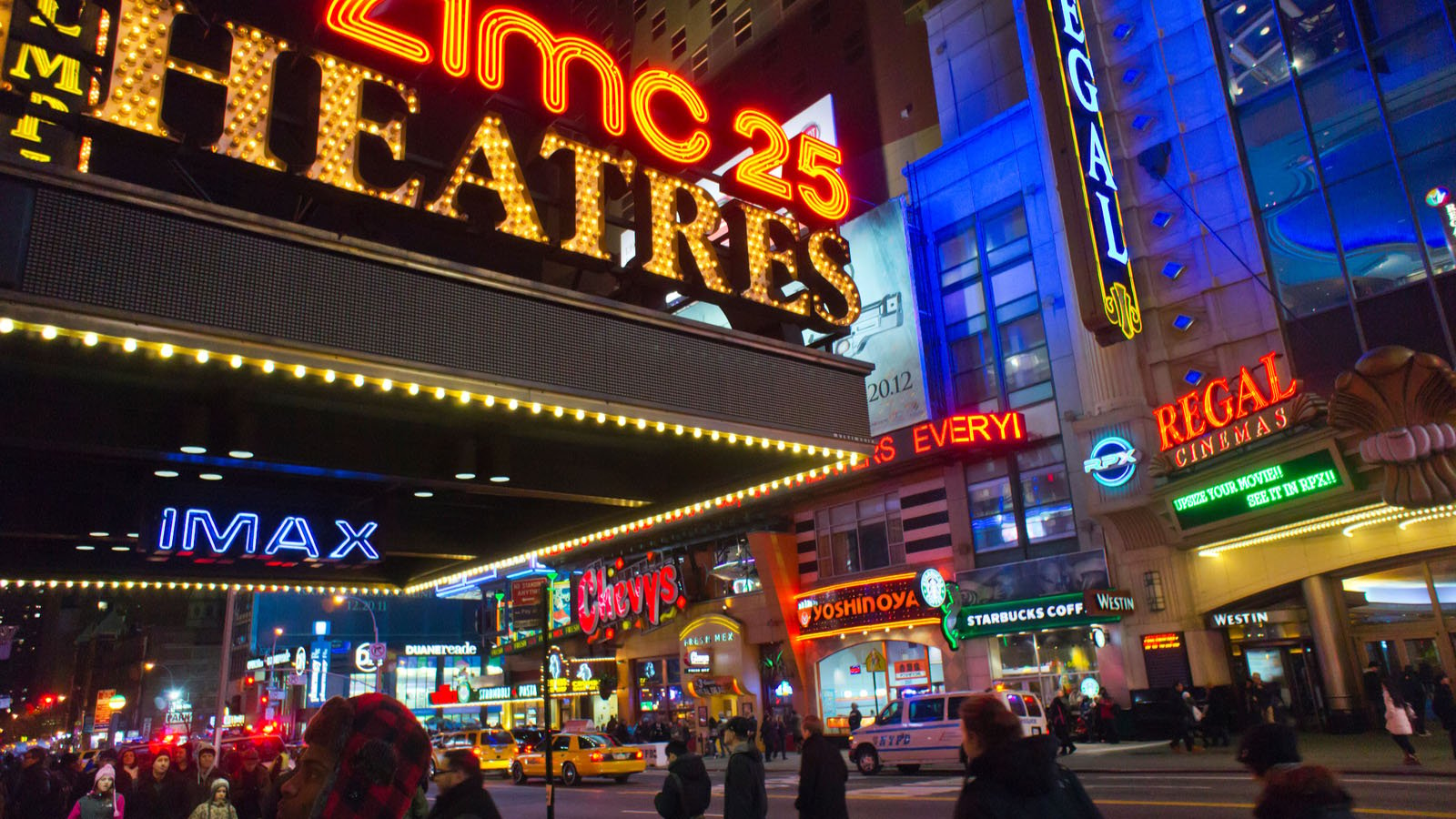AMC Entertainment (NYSE:AMC) shares are up about 5% so far in the new year. That’s a nice change for investors who watched their AMC stock holdings drop in value by about 70% in 2020.

However, this mini-rally is unlikely to last. AMC shares were already stuck in a four-year rut and the pandemic that decimated its business last year is far from over. Perhaps worse, Covid-19 has now opened Pandora’s box when it comes to new movie releases hitting streaming services immediately.
AMC reported its third-quarter earnings in November, revealing the depth of its challenges. Revenue for the quarter was down nearly 91% year-over-year (YOY). On top of that, AMC is adding debt, selling assets and begging landlords for concessions. Chances are that won’t be enough to save the stock from falling further.
AMC Stock: Theaters Survived Before, But This is Different
Optimists on AMC stock may point to the 1918 influenza epidemic as having many parallels to this pandemic.
Back then, movie theaters also played to dwindling audiences before being forced to close for extended periods. Additionally, production on sets was limited and in some cases shut down. And, when customers were allowed back in theaters, they suffered through various protective measures like masks and being sprayed with disinfectant. Some locations even limited seating capacity. Yet, the movie industry and theaters survived that outbreak, soon becoming stronger than ever.
The problem is, however, that this is not 1918 — the path to recovery for the industry is going to be markedly different in 2021.
One of the biggest differences is video streaming. Obviously, the technology didn’t exist in the early 1900s. Neither did TV, for that matter. If you wanted to watch a movie back then, a theater was really your only option.
Today, though, most homes in the U.S. subscribe to at least one streaming service. That’s a game-changer. Plus, a number of high-profile movies — like Soul and Wonder Woman 1984 — either released direct-to-streaming or hit platforms and theaters at the same time. Finally, while the pandemic has hammered companies like AMC, the studios aren’t feeling nearly the same degree of pain. That’s especially true for the companies that own their own video streaming services.
The danger for theaters is that, once we return to normal, studios will be reluctant to walk back the changes. For one, having big ticket movies available immediately on their platforms helps sell subscriptions. With streaming video increasingly important to the bottom line, they may choose to continue doing so as a competitive advantage, hurting theaters in the process.
Derek Long is a professor of media and cinema studies at the Illinois College of Media. Commenting on the disparity between the plight of studios and theaters, Long says:
“[I]f the virus continues to keep most moviegoers away from theaters into 2021, we could see permanent shifts in the way that we watch new films. Movies might increasingly premiere directly to digital-on-demand formats, as ‘Trolls World Tour’ did in April. Distributors will manage that change no matter what happens, whereas the future of theaters under that circumstance is much less certain.”
Industry Experts Are Concerned
But Long isn’t the only one concerned about the future of movie theaters.
Lucas Hilderbrand, a professor of film and media studies at UCI, thinks the pandemic’s effect on the industry has been the most profound “since the introduction of videotape.” He says:
“[W]e’re witnessing what may be the irreversible turn from cinema being a theatrical mode to becoming a predominantly streaming medium.”
Additionally, Louis-Etienne Dubois, a professor at Ryerson University in Canada, expressed concerns that Covid-19 will have a lasting impact:
“People are going to be a little bit skittish about gathering and there’s probably a percentage of the audience that’s gone for good.”
Needless to say, AMC and other movie theater companies have a lot to overcome, even after the pandemic ends. And that puts AMC stock in a more-than-difficult position.
Bottom Line
AMC’s efforts to stay afloat by borrowing are only adding to the challenges. In October, Standard and Poors downgraded AMC debt to junk bond status, warning that the company is “in danger of defaulting” on its growing debt.
What’s more, when it comes to investment analysts, the picture is mixed — but far from optimistic. For example, analysts surveyed by CNN Business have AMC stock rated as a consensus Hold, with three out of the eight analysts rating it as a Sell. Basically, nobody is optimistic enough to suggest buying shares. And their median 12-month price target of $2 suggests they also feel the current rally won’t last.
So, it goes without saying that this struggling company rates an “F” in Portfolio Grader. Of course, I’m all for going to my local theater and seeing a movie later this year. But AMC stock is another matter. It’s not a pick I would consider touching at this point.
On the date of publication, neither Louis Navellier nor the InvestorPlace Research Staff member primarily responsible for this article held (either directly or indirectly) any positions in the securities mentioned in this article.
Louis Navellier had an unconventional start, as a grad student who accidentally built a market-beating stock system —with returns rivaling even Warren Buffett. In his latest feat, Louis discovered the “Master Key” to profiting from the biggest tech revolution of this (or any) generation.
